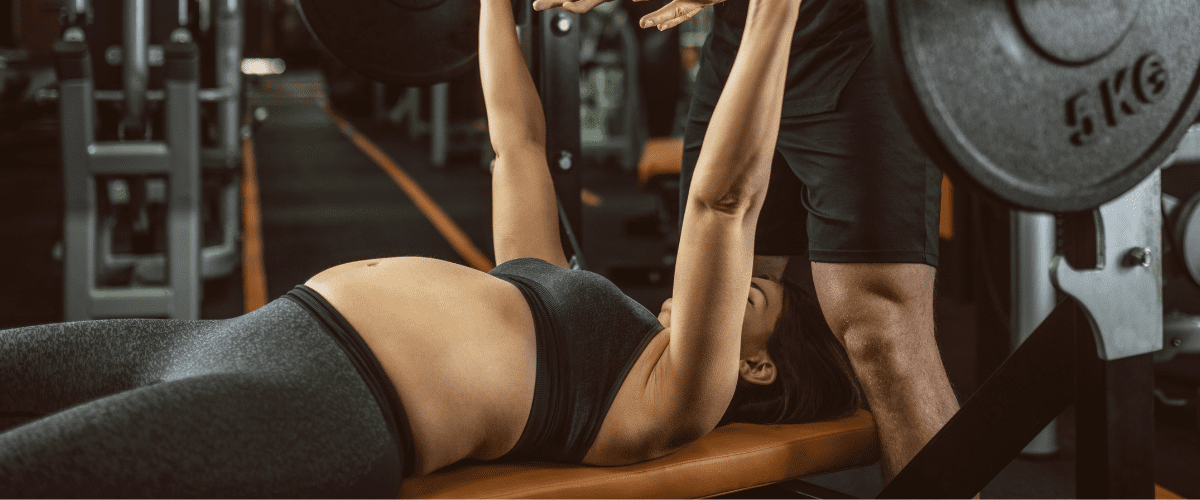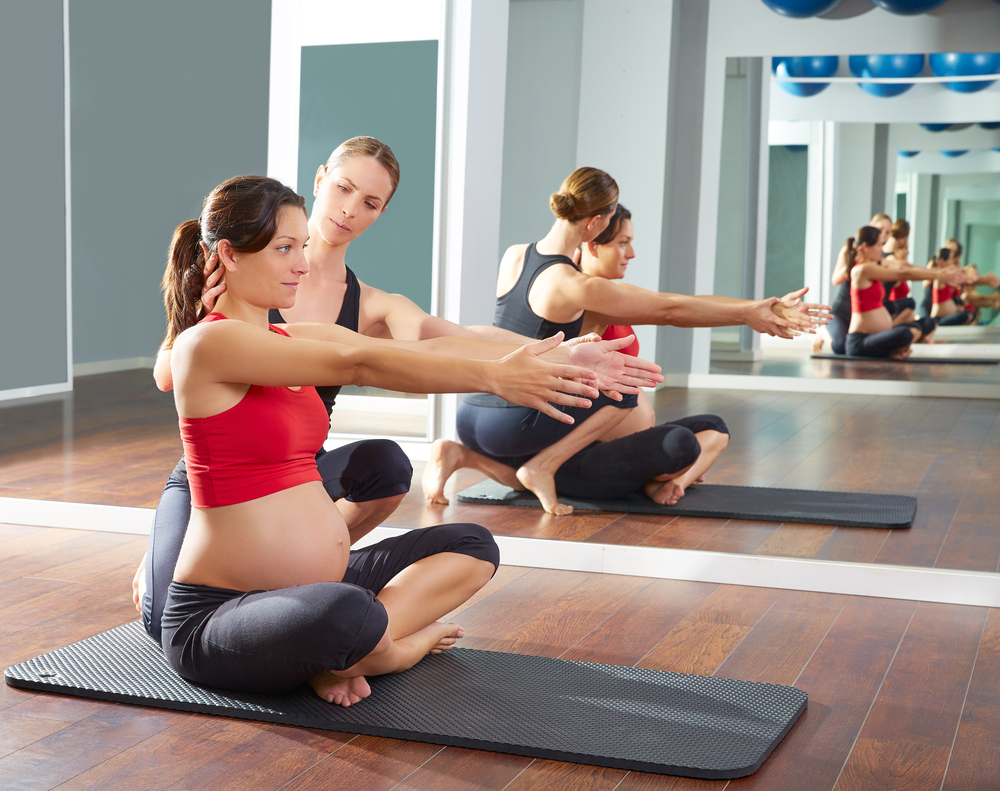

The Benefits of Exercise During Pregnancy.
Current guidelines advise women to undertake moderate exercise during pregnancy, but what are the benefits for mother and baby?


Current guidelines advise women to undertake moderate exercise during pregnancy, but what are the benefits for mother and baby?
Exercise in Pregnancy? What are the Benefits?
For many years, the commonly held belief was that women should not be too active during pregnancy. From the Tudor concept of ‘lying-in’ to the idea of ‘eating for two’ women have been encouraged to rest as much as possible from conception through to birth. But research has shown that prenatal exercise has many benefits for both mother and baby, in fact UK Government guidelines suggest that pregnant women ‘aim for at least 150 minutes of moderate intensity activity every week’.
The fatigue and discomfort that are part of pregnancy may make this feel unachievable, but by maintaining a normal daily routine, or even gradually adding in exercise, pregnant women can benefit from a whole host of exercise-related advantages, from reducing the risk of pregnancy complications to improving recovery after birth.
The benefits of exercise for pregnant mothers.
Many people will be familiar with not wanting to workout, coupled with pregnancy exhaustion this can make finding the motivation to exercise difficult! But the boost of endorphins post-exercise will improve mood and help to level out the emotional rollercoaster of pregnancy hormone, as well as increasing energy levels. Endorphins also help to reduce stress, anxiety and depression – statistics show that women who undertake physical activity during pregnancy are 19% less likely to suffer from depression.
With all of the physical changes taking place within the body, aches and pains are incredibly common during pregnancy. Lower back pain, and sciatic pain are some of the most frequently experienced and regular exercise can help to ease the postural changes and the pain they cause. Besides gentle activity like walking or swimming, the NHS recommends muscle strengthening activities twice a week for maximum health benefits.
Pre-Eclampsia is the number one cause of premature birth and causes danger for both mother and baby. It can also disrupt blood flow to the placenta resulting in low birth weight of the baby. Exercising can improve blood flow, control weight gain and reduce swelling, all of which reduce the likelihood of Pre-Eclampsia occurring. Another common pregnancy complication is Gestational Diabetes, which can cause the baby to grow excessively and also result in the mother developing Hypoglycaemia after the birth. Moderate exercise three times a week helps to lower blood sugar by improving insulin sensitivity and improving levels of maternal glucose tolerance.
Weight gain during pregnancy is perfectly normal, but for optimal health for both mother and baby excessive weight gain should be avoided. This is due to excess weight gain increasing the risk of complications like Pre-Eclampsia, Gestational Diabetes and the need for a Caesarean Section. Exercise burns calories which can minimise weight gain.
Diastasis Recti occurs when the muscles on the left and right of the abdomen move apart to make room for the growth of the baby. Some separation is normal but when the gap is significant it is known as Diastasis Recti, or abdominal separation. DR occurs in about 67% of women during pregnancy but this increases to almost 90% of women who did not exercise.
It might seem counterintuitive but gentle activity can reduce the symptoms of morning sickness. A brisk walk may distract you from feelings of nausea and boost energy levels.
Motherhood can be physically demanding, so heading into it in good health is a real bonus. Research has shown that exercise during pregnancy may give women the ability to become more fit after. Blood volume increases during pregnancy, and maximising this through exercise can improve maximal aerobic capacity post-partum.
Sleeping during pregnancy, particularly during the third trimester, can be incredibly difficult. Moderate exercise can reduce the amount of time it takes to fall to sleep and alleviate daytime drowsiness which can interrupt sleep patterns. Pregnancy workouts can also reduce the amount of time spent awake during the night, therefore maximising sleep quality.
The mental and physical changes experienced by a pregnant mother can lead to insecurity or feeling a loss of control over your body. Undertaking a workout can be extremely empowering and re-establish a sense of self. Not only can the mental strength and discipline shown build confidence, but it can also help women to appreciate the changes to their body. A regular exercise routine will establish consistency and can provide a real sense of accomplishment.

The benefits of exercise for the baby.
There is a growing body of evidence that shows that healthy mothers give birth to babies with fewer health problems. Being active during pregnancy can reduce the risk of the baby developing juvenile diabetes and also the risk of neonatal macrosomia; babies being born too large.
Research shows that children of mothers who exercised during pregnancy score higher on intelligence and language tests. Exercise improves the health of the placenta by providing increased blood flow and nutrients. This is linked to foetal brain development; studies indicate that babies’ brains develop more rapidly when their mothers exercise regularly.
According to research, if mothers exercise during pregnancy, then babies are better able to tolerate the stresses of labour. This extends into the postnatal period, where babies of mothers that exercised tend to be more alert and easier to care for.

The benefits of exercise during labour.
Undertaking exercises to strengthen the core and pelvic floor can lead to a faster labour and a quicker recovery after birth. Remaining active or building fitness during pregnancy also improves stamina which can make labour easier. Strengthening the muscles required to push can be done during pregnancy, even if the mother is new to exercise, but finding a programme that is appropriate and safe is important.
Studies show a strong link between exercise during pregnancy and a reduced need for intervention during labour, women who did regular exercise were 75% less likely to require a C-section or forceps. Whilst a successful delivery is any method that results in a healthy baby, a C-section does bring with it an increased risk of infection, a longer recovery and also delays milk production making breast-feeding more difficult.
Women who exercise during pregnancy have been shown to recover their physical health faster, easing the transition into new motherhood. Exercise also strengthens the immune system. This helps incisions and wounds heal faster, lowering the risk of infection during those first days after birth.
A health visitor can advise if it’s safe to exercise and give tips on types of exercise to try, for example, experts do not recommend hot yoga during pregnancy. High impact exercise can be continued for pregnancy workouts, as long as it’s comfortable. Undertaking any exercise that raises the heart rate, strengthens the muscles and prepares the body is beneficial for both mother and baby.